WALL STREET (1987)
A young stockbroker in the 1980s falls under the spell of a ruthless corporate raider.
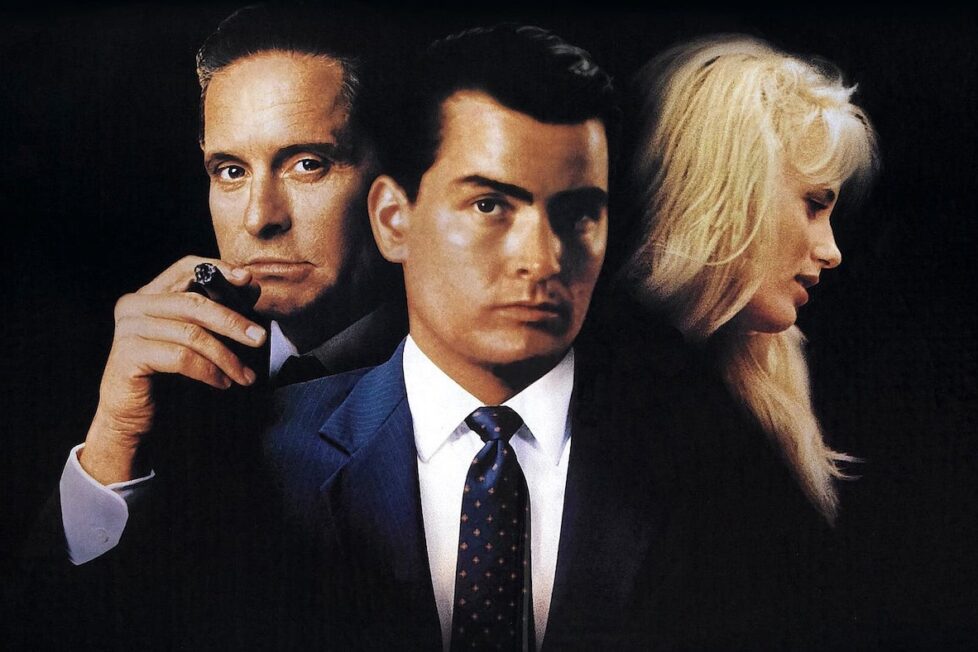
A young stockbroker in the 1980s falls under the spell of a ruthless corporate raider.


Oliver Stone isn’t a filmmaker who opts for subtlety when there’s a sledgehammer to hand, and Wall Street is no exception. Half satire of obsessively acquisitive yuppiedom, half lament for a supposed lost utopia of non-materialist values, it’s perhaps most famous for a single line—“greed is good”—spoken by successful and amoral investor Gordon Gekko (Michael Douglas) to the shareholders of Teldar Paper as he encourages them to accept his takeover bid.
As with many things about Wall Street, however, both the line and Gekko are misunderstood. While even the film’s working title was Greed, and despite Stone’s fondness for the sweeping statement, even he’s not seriously contending that greed was a phenomenon never witnessed before the 1980s. His point is more specific and his characterisation of Gekko more nuanced.
Gekko isn’t simply saying his own enrichment of himself at the expense of others is morally acceptable (though he doubtless does believe this), he’s encouraging the shareholders themselves to be “greedy” by getting rid of Teldar’s inefficient management, thus making the business more profitable and increasing the value of their stock.
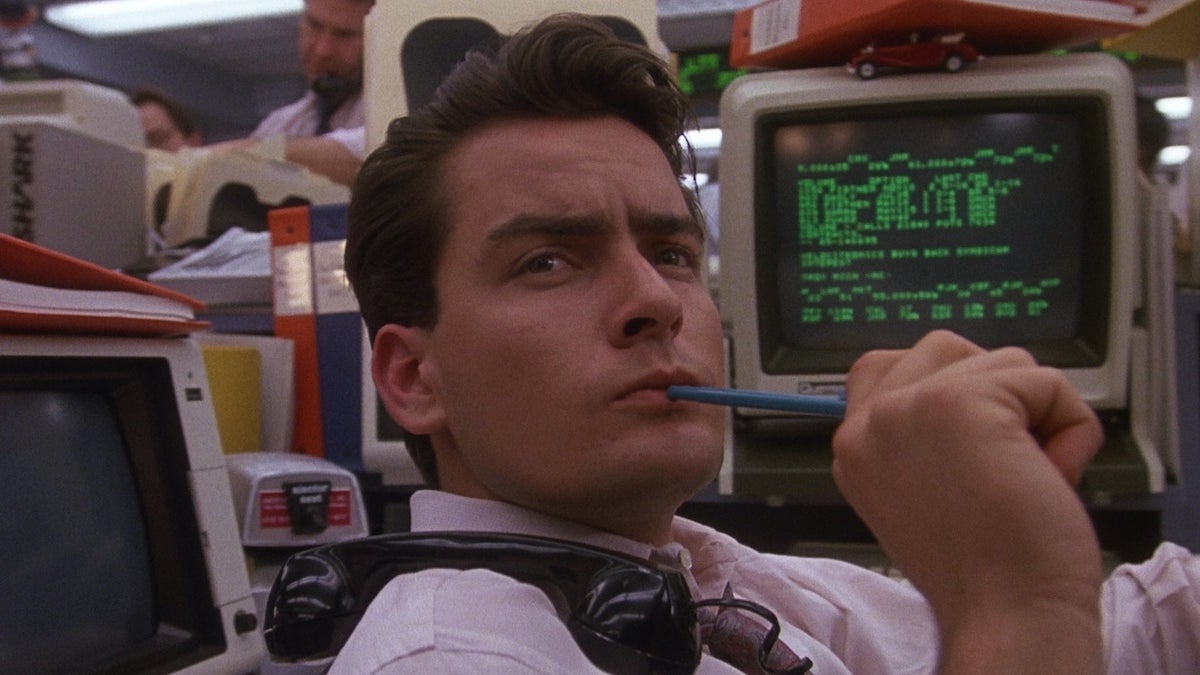
This was, of course, a central tenet of the Reagan-Thatcher approach to business, and there’s plenty of room to disagree with it. Indeed, despite his persuasive promises to the shareholders’ meeting, Gekko’s later treatment of another takeover target casts doubt on what he really intends for Teldar.
But what it does demonstrate is that at least Gekko, unlike his young protégé Bud (Charlie Sheen), has some kind of philosophy behind his tireless amassing of wealth. He even goes on, in the same speech, to praise “greed for life, for money, for love, knowledge”, and we see elsewhere in the film that he’s a serious and knowledgeable art collector who savours simpler things too (“I’ve never seen a painting that catches the beauty of the ocean at a moment like this,” he tells Bud at one point). What Gekko does may not be right in everyone’s view, but he’s thoughtful and aware of what he’s doing… where Bud is not.
Their names may suggest a villain-hero distinction (Gekko/gecko is a lizard, Bud/buddy is a guy you’d like as a friend), but the unavoidable implication of what we actually see and hear in Wall Street is that it’s Bud, not Gekko, who’s mindlessly rapacious. Gekko relishes making a (paper) profit on the art he buys, but he also appreciates the works themselves; while Bud seems to take no interest in the art on the wall of his new apartment except insofar as it signals his sudden wealth.
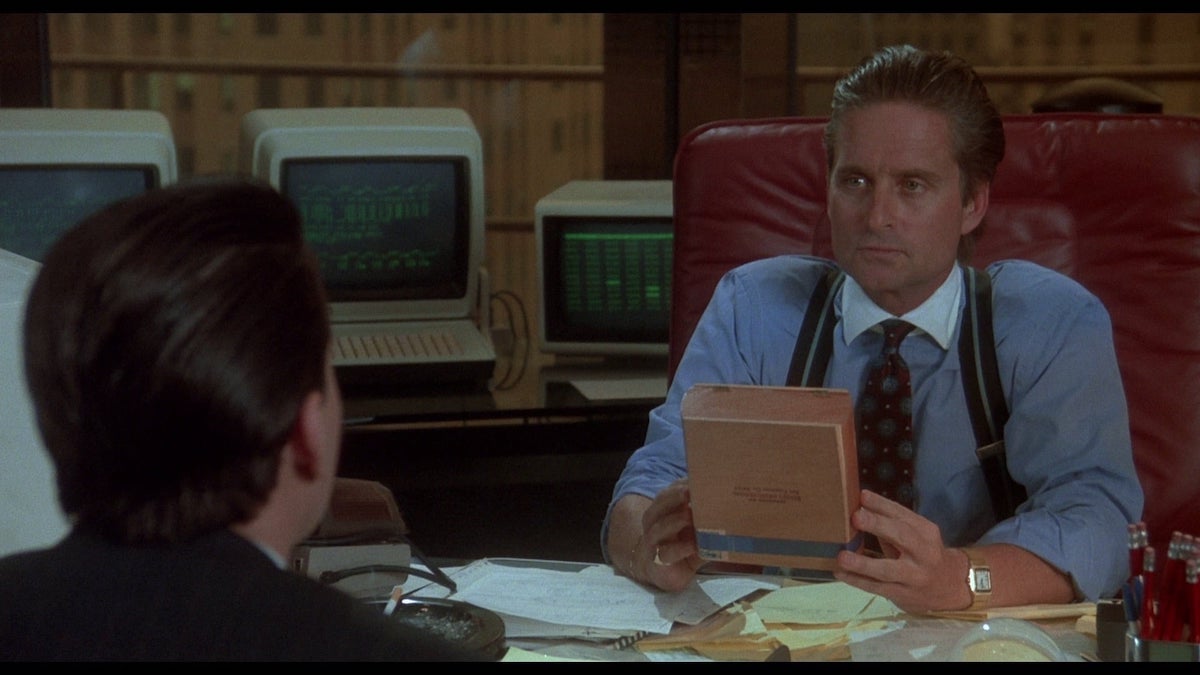
Gekko is, then, a more complex character than Bud (and also a more appealing one than Bud’s irritable dad Carl, played by Charlie Sheen’s actual father Martin, who may represent the nobility of honest blue-collar work but doesn’t seem like he’d be as fun to hang out with as Gekko). Douglas’s character is the more intriguing of the two, as well, despite Bud being the nominal protagonist. It doesn’t help that Charlie Sheen’s performance is so inexpressive, or that Bud’s big moment of personal revelation is marked by the extraordinarily vapid line “who am I?”
And though Gekko is undoubtedly greedy, he’s far from the only offender in the film or the worst culprit (that would perhaps be Bud?) He’s distinguished from countless other equally greedy people in Wall Street merely by being good at it, and perhaps the campaign to partially rehabilitate the reputation of Gordon Gekko, which Stone half-began in the late sequel Wall Street: Money Never Sleeps (2010), needs resuscitation. The problem isn’t a handful of evil masterminds, it’s the financial system as a whole.
Set in 1985 (and thus unaffected by the 1987 Black Monday market crash which took place shortly before its release), Wall Street begins with a montage of commuters on their way into Manhattan, Sinatra’s “Fly Me to the Moon” on the soundtrack encapsulating their ambitious dreams. It’s on the subway that we first see Bud, and the camera then follows him through the crowds into the offices of Jackson Steinem, where he works as a junior broker managing the stock portfolios of unimportant clients while longing to act for a really big player like Gekko.
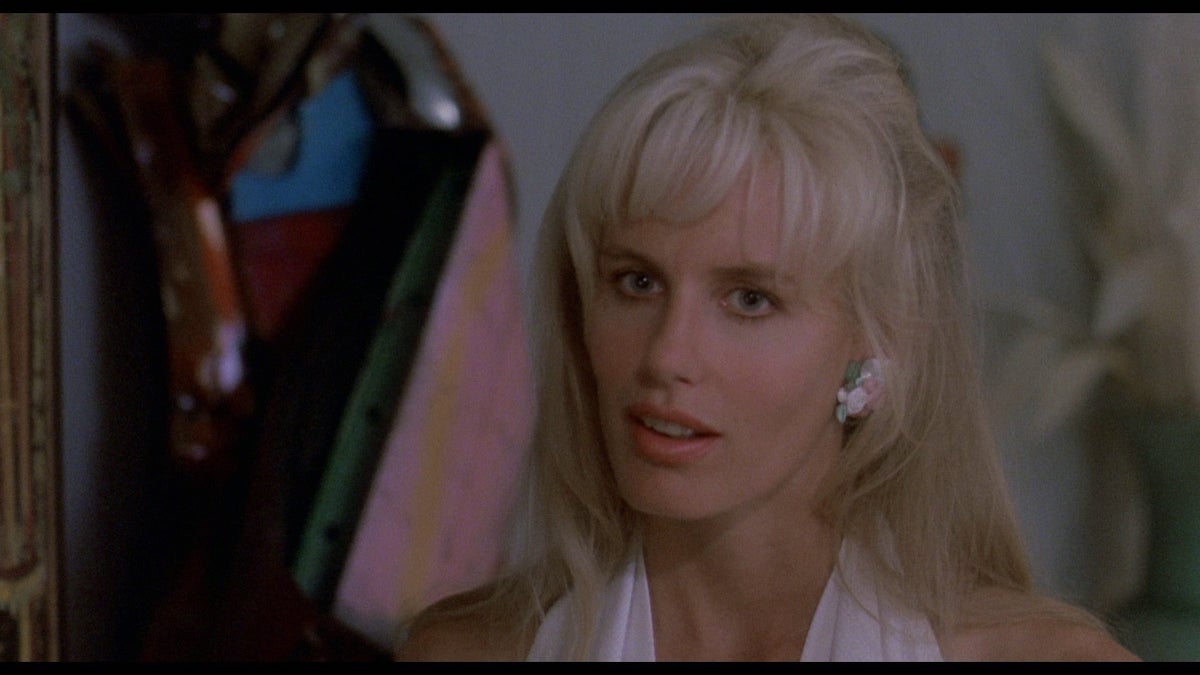
We soon also meet other workers at the company, including the much older Mannheim (Hal Holbrook), who advises Bud to “stick to the fundamentals”, meaning the underlying, real-world viability of a business as opposed to the ways an investment can be manipulated to get rich quick. “Good things sometimes take time,” Mannheim says, and it’s obviously not what the new breed of brokers like Bud and his hyperactive colleague Marvin (John C. McGinley) want to hear.
Another representative of the old school is Bud’s father Carl, a maintenance technician and union leader at a small airline, Bluestar. Parent and child are growing apart (“it’s called pasta now, dad—spaghetti’s out of date”), but after Bud finally achieves a long-sought-after brief meeting with Gekko, it’s inside knowledge of Bluestar’s business gained from his father that enables Bud to win his new master’s confidence.
Before long, although he’s still nominally employed by Jackson Steinem, Bud is effectively working for Gekko, seeking information that will enable the multi-millionaire to secure deals that other investors haven’t spotted. With this role come the trappings of Eighties excess—a blonde, a limo and some coke all figure early on—and, in due course, a girlfriend in Darien (Daryl Hannah), as well as the attention of market regulators looking out for illegal activity.
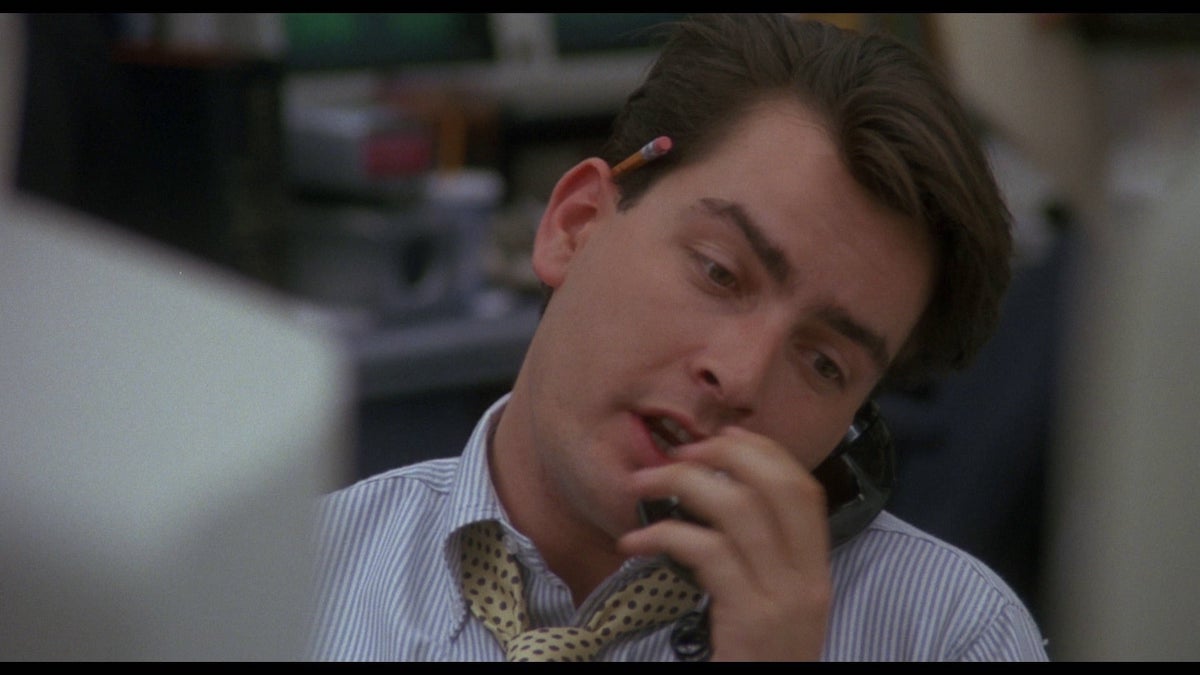
Stone’s clearly trying to suggest that Gekko and Bud are involved in insider trading, though Wall Street’s grasp on both the law and plausibility is sometimes shaky. Some of the things Bud does seem legal enough, while others—like posing as a cleaning supervisor in order to rifle through a company’s files—seem to belong in Mission: Impossible! And a secretly-taped conversation purporting to provide a pivotal moment of payback doesn’t contain anything really incriminating.
Still, for all its simplifications and exaggerations, Wall Street is unusual in its relatively realistic and detailed portrayal of business—the foregrounded subject of a few films, though often a backdrop. Stone himself noted that Executive Suite (1954) was “the last serious business film that I’d seen.” Produced quickly, and released only a year after the Ivan Boesky insider trading scandal, it wasn’t only topical but filmed in part on a real trading floor with real traders. It was also sometimes criticised for using too much incomprehensible financial jargon, although in truth the gist is easily grasped.
It may also have been intended as a more balanced movie than is often assumed, particularly after early comments on the unproduced script pointed out the implausibility of picturing all Wall Streeters as completely dishonest. Gekko calls himself not a destroyer but a liberator of companies, and (perhaps unexpectedly) Stone isn’t unsympathetic, describing his Teldar speech as “a commonsense point of view.”
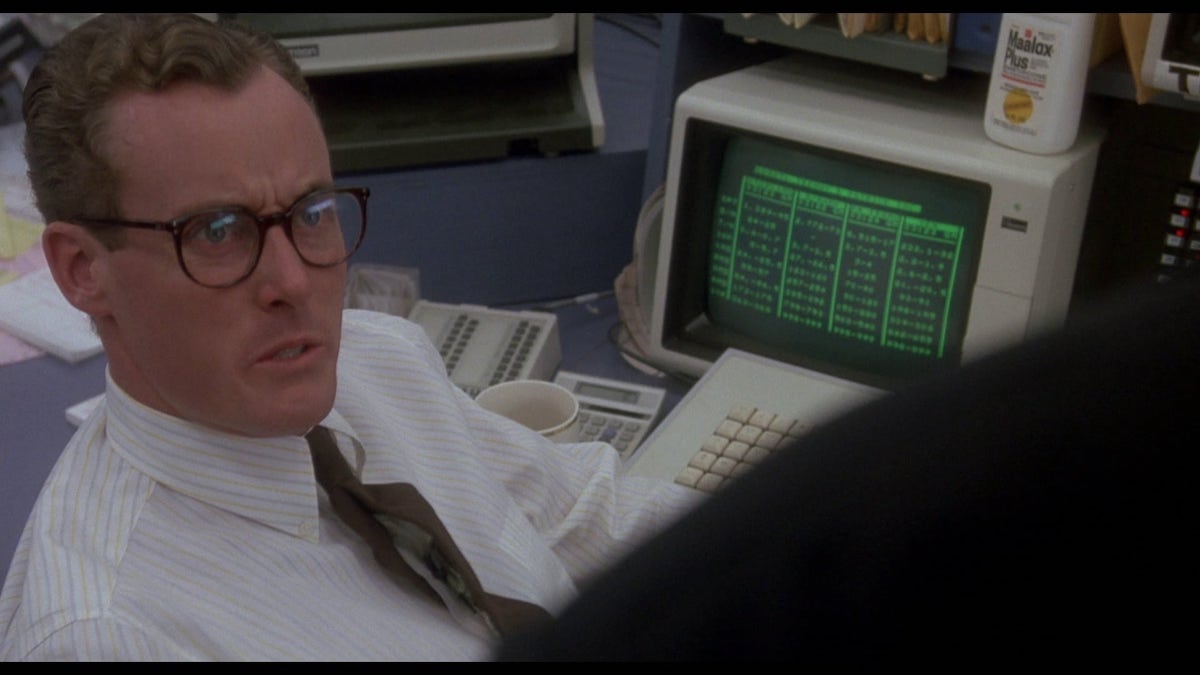
Equally, and again contrary to its reputation, Wall Street doesn’t condemn capitalism outright, but instead puts forward a more socially-minded alternative to Gekko’s short-termism: Wildman (Terence Stamp) is a British investor, seemingly even wealthier than Gekko, who buys companies in order to run them rather than asset-strip them. Judging from his repeated use of the word “mate”, he has working-class origins, just as Gekko and Bud do; so, despite superficial appearances, the idea of seeing Wall Street as a parable of class war is misguided. Bud’s father Carl may be the only one who still works with his hands but the film doesn’t present him as having any credible plans for the future of Bluestar.
Much as in Stone’s Platoon (1986), Bud must choose among several father figures—Gekko, of course, but also Carl (who like Stone’s own father calls him “Huckleberry”) and Mannheim (who resembles Stone’s father in being a stockbroker of an older generation). That Bud appears to select Gekko out of the three points to how much he is led by his own avarice, and if he’s a victim it’s only of his own naivety.
Unfortunately, although Stone felt the actor’s somewhat awkward manner was right for the part of such a young man, Charlie Sheen’s Bud is fatally lacking in depth, and his reported reluctance to engage much with the real Wall Streeters he and the other filmmakers met during research may contribute to his unconvincing effect.
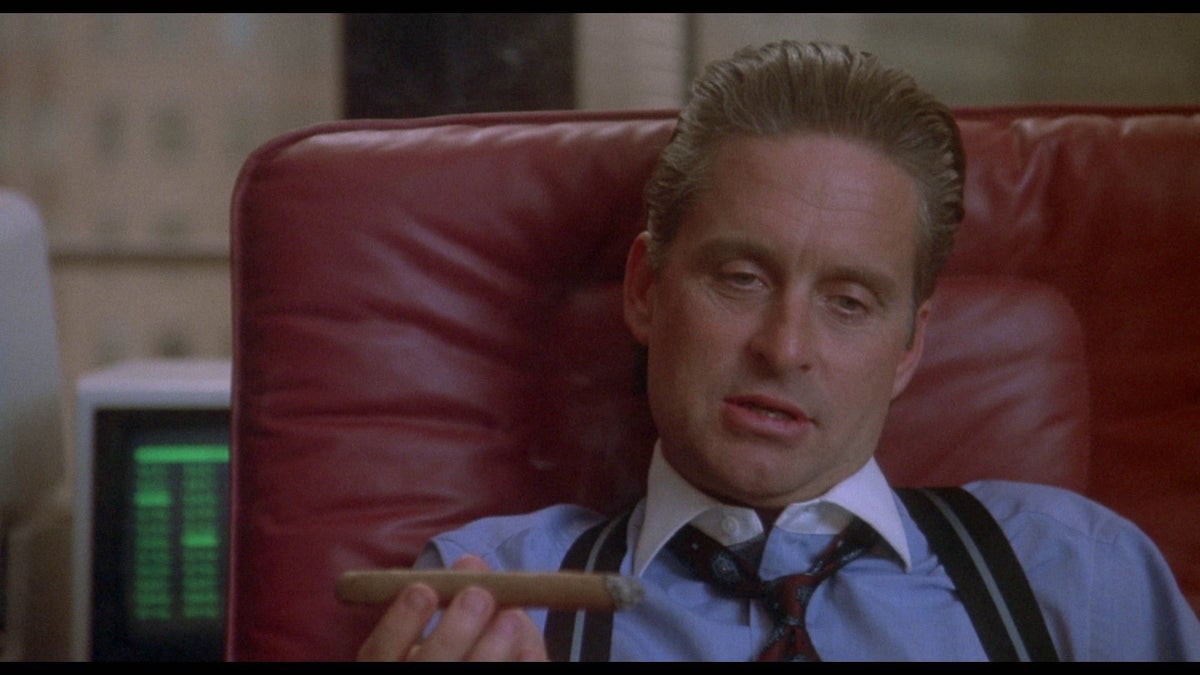
Michael Douglas, who won ‘Best Actor’ at the Academy Awards as well as many other accolades for Wall Street, is far more magnetic, with a wolfish grin and unreadable eyes, verging on self-parody at times. He consigns birthday cards to the shredder and declares “lunch is for wimps.”
Hannah’s performance is Darienis often maligned, a tad unfairly. Whereas Sheen seems to have little beneath the surface even at times when he should be exposing his deepest feelings, Darien comes across as someone consciously playing a rather superficial role in what was still very much a man’s world, and just occasionally letting her more grounded inner self show through.
Among the supporting cast, McGinley is memorable for his uncontrollable nervous energy frequently breaking into hysteria, while Sylvia Miles contributes an amusing cameo as the realtor who sells Bud his apartment (and is then called on to sell it again when things go bad for him). Josh Mostel, son of Zero, appears in a small role as one of Gekko’s minions.
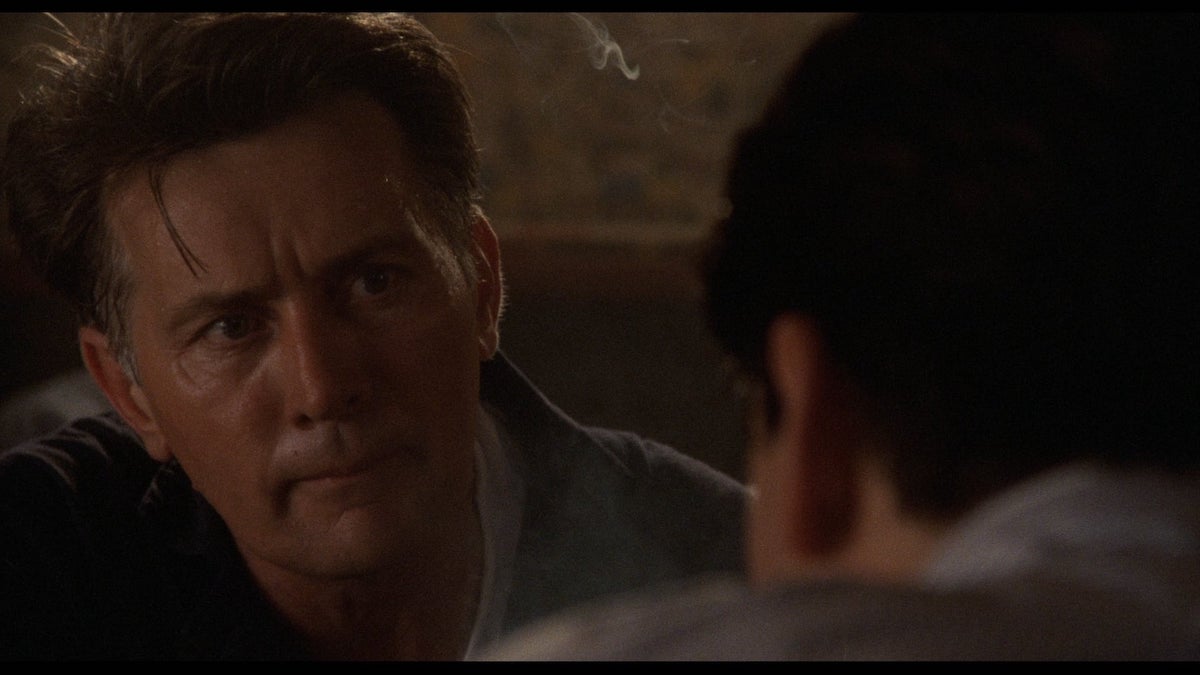
But the film’s biggest problem is that Stone isn’t really interested in any of them as people (which may account partly for Charlie Sheen’s dull performance and for the poor reputation of Hannah’s, and also makes Douglas’s achievement all the greater). Emotion is manufactured for cartoonish moral points. As Hal Lipper in the St. Petersburg Times wrote, the “characters have no subtlety. They practically wear placards—GOOD, BAD, CORRUPTIVE, REDEEMED.”
For the same reason, there’s little tension. We might be curious about the outcome of plot questions, but we have no personal investment in them. We recognise that Bluestar would be better off with an owner committed to saving jobs, but we don’t really care in our gut.
And, just like the characters themselves, the dialogue is often thinly disguised explanation or sermonising: most painfully a scene where the planned liquidation of a takeover target’s assets is explained, and Carl’s final speech where he implores Bud to “stop going for the easy buck… create, instead of living off the buying and selling of others”. It would be a dim viewer indeed who hadn’t gotten that point after two hours of Oliver Stone making it.
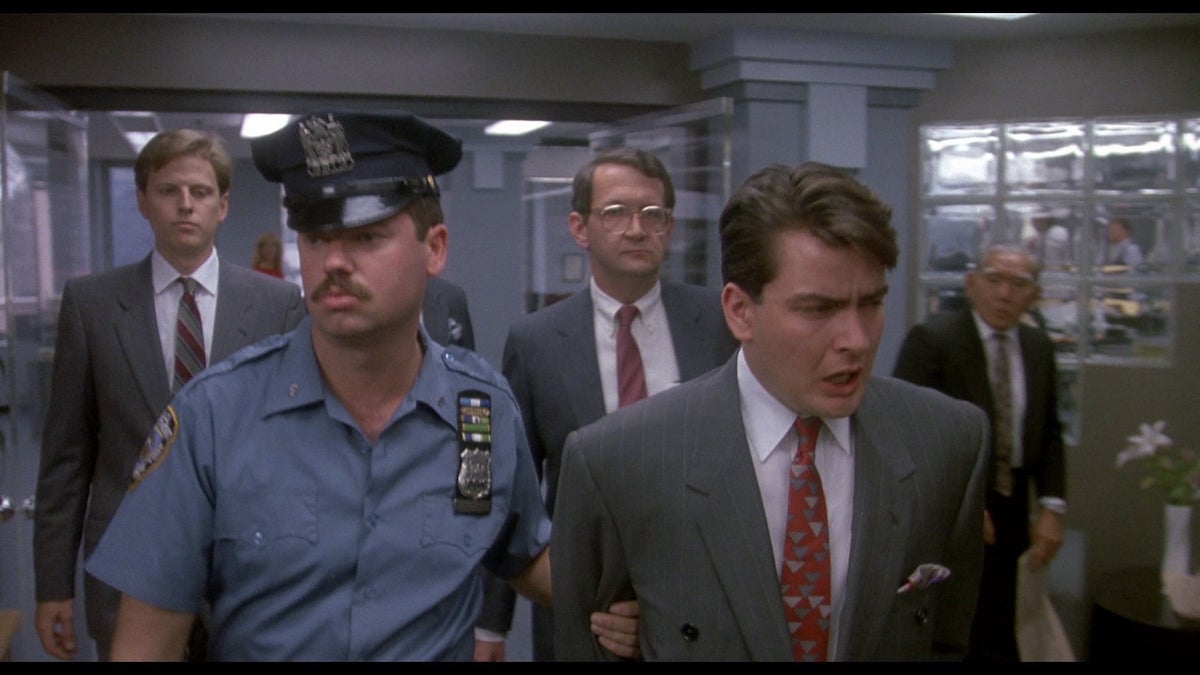
Wall Street was only a middling performer at the box office (enough to satisfy a Wildman, perhaps, but not a Gekko), and despite Douglas’s acclaimed performance, the contemporaneous eviews were mixed. As so often, Stone was found guilty of lecturing the audience in morally simplistic and dramatically overstated terms, and the criticisms were not unjust.
American Psycho (made in 2000, but based on a novel written not long after Wall Street) is both funnier as a satire of the era and more insightful about the kind of personalities who exhibited such greed—or, perhaps, the effect greed had on personalities—partially because it is not so anxious to ram home a conclusion, and prepared to let us draw our own instead. A handful of other films, notably Margin Call (2011) and The Big Short (2015), have since dealt with the reality of the markets in a more sophisticated way.
On the plus side, though, there’s always Gordon Gekko, who remains the best reason to watch Wall Street, and (if you can shut out Stone’s hectoring) a more nuanced and interesting man than the legend suggests.
USA | 1987 | 126 MINUTES | 1.85:1 | COLOUR | ENGLISH

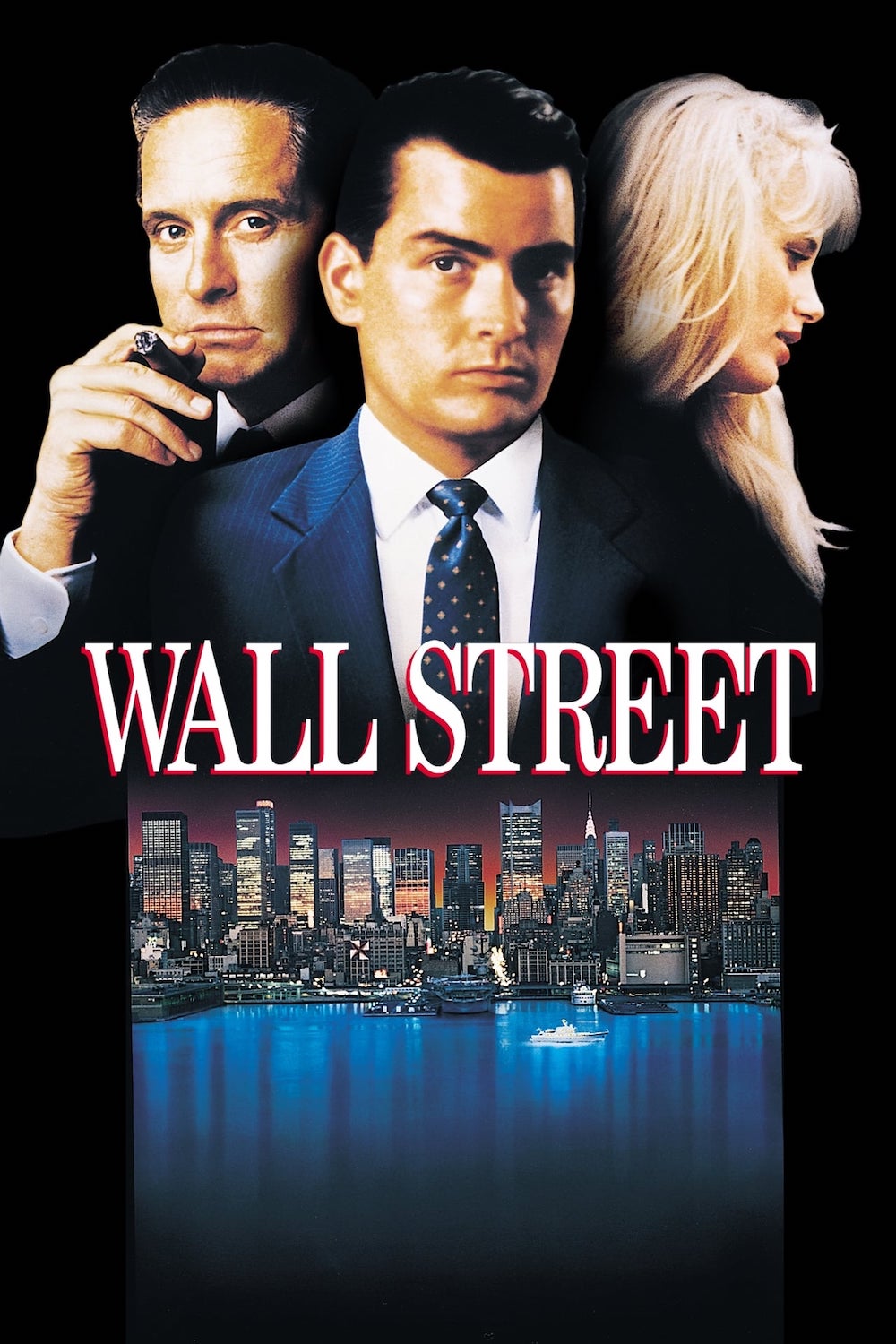
director: Oliver Stone.
writers: Stanley Weiser & Oliver Stone.
starring: Michael Douglas, Charlie Sheen, Daryl Hannah, Martin Sheen, Terence Stamp & Hal Holbrook.
